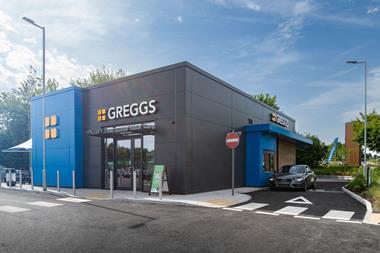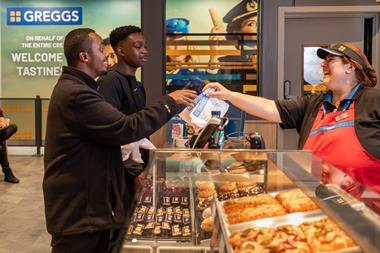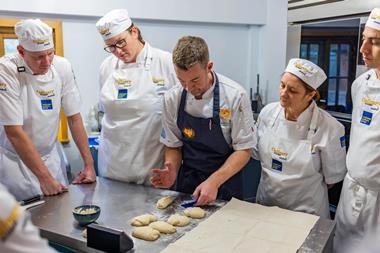
Greggs is one of several big bakery players supporting a study that could result in allergies being treated with everyday foods, potentially saving the NHS millions spent on pharmaceutical drugs.
The three-year oral immunotherapy (OIT) trial will be the first major study funded by The Natasha Allergy Research Foundation, the charity set up by the parents of Natasha Ednan-Laperouse who died aged 15 from a severe food allergic reaction, leading to the establishment of the Natasha’s Law labelling regulations. The study aims to prove that commonly available peanut and milk products taken under medical supervision can be used as a treatment for people living with food allergies.
If successful, participants with persistent food allergy will no longer have to avoid popular foods that could contain small amounts of allergens due to production, such as cakes and pizza.
The £2.2m trial will be funded by a gift to the University of Southampton from The Natasha Allergy Research Foundation. The charity has received donations from its research founding partners comprising Greggs, Tesco, Just Eat, Co-op, Morrisons, KFC, Bakkavor, Sainsbury’s, Bidfood, Costa Coffee, Elior UK, Burger King, Pret A Manger, Lidl, Leon, Cooplands and Uber Eats.
“Following the successful implementation of Natasha’s Law, we are proud to support The Natasha Allergy Research Foundation in its mission to make allergy history and the Natasha clinical trial that gives new hope to people living with food allergies, many of whom will be our customers,” said Roger Whiteside, who completed his tenure as Greggs CEO on 17 May.
The trial will be led by researchers at the University of Southampton and University Hospital Southampton NHS Foundation Trust, partnering with Imperial College London (both World Allergy Organisation Centres of Excellence) together with University Hospitals of Leicester NHS Trust, Newcastle University and Sheffield Children’s Hospital.
The study will recruit a total of 216 people between the ages of three and 23 with food allergy to cow’s milk and aged six and 23 with food allergy to peanut. Following an initial 12 months of desensitisation, carried out according to a standardised protocol under strict medical supervision, participants will be monitored for a further two years in order to report on longer-term safety and cost-effectiveness.
The aim is to bring the level of evidence to a point where OIT using commercially available foods could be approved for use in the NHS to treat food-allergic patients most at risk of anaphylaxis.
“This project presents a unique opportunity to establish immunotherapy as a practical treatment that will allow people with food allergies to live a normal life,” said Hasan Arshad, professor of allergy and clinical immunology at the University of Southampton. “I am immensely proud that the University of Southampton will be leading this trial in collaboration with an elite group of partner universities and clinical allergy centres.”
































No comments yet